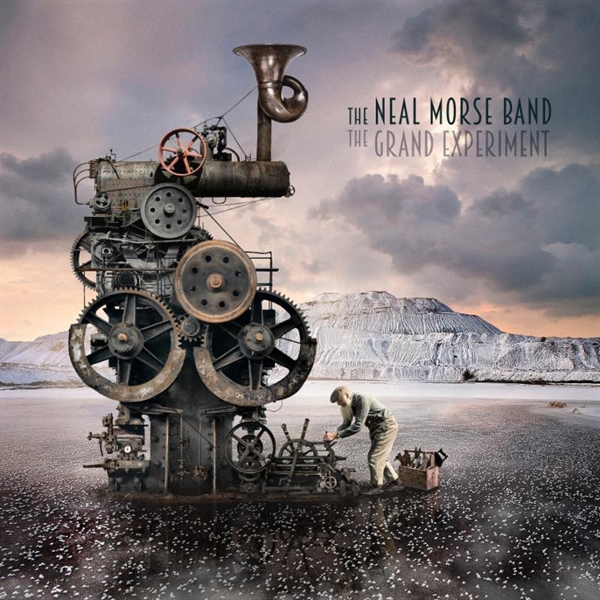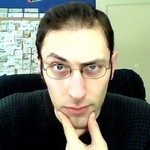
Album Review: Neal Morse Band - The Grand Experiment
Coming off the greatest year I can ever recall, where he put out the epic masterpiece “Kaleidoscope” with Transatlantic, a brilliant solo album in “Songs From November”, and another great Flying Colors album, there was the inevitable question of what was to come next for Neal Morse. The last five years or so, he has been on such an incredible roll that it's hard to fathom the amount of amazing music he has been responsible for. My shelves are filling with his albums, as it seems everything Neal touches turns to gold.
The answer to the question is that Neal has embarked on a new journey with this album, which is what it's title portends; a grand experiment. Bringing his band into the studio with him for the first time, and with no material written and ready to be arranged, this is the first album from what is truly now the Neal Morse Band. Far from being a slight semantic shift, the inclusion of Eric Gillette and Bill Hubauer makes a noticeable impact on the music, which brings new sounds and attitudes to Neal's traditional prog framework.
Listening to the title track, the lead single, shows this off. With layered harmonies that were not possible before, the band explores new melodic territory, while Gillette pushes the band into harder territory with his guitar tones, turning the muscular sections into hard-hitting forays into the power of rock. Even his choice of tones shifts the sound, being slightly different than what you might come to expect from a Neal Morse album. That can make it a bit jarring at first to listen to the album, but soon everything clicks into place, and the music settles back into focus.
“The Grand Experiment” is a diverse collection of songs, showcasing the players, and the varied sounds that come from a band environment. The short-and-sweet “Agenda” doesn't sound like anything Neal has ever done before, with it's punchy attack and falsetto chorus, nor does “Waterfall”, which is a different kind of ballad. The hallmarks of Neal's phrasing are still present, but there are moments where the band's influences are undeniable.
Of course, the main focus will be placed on the two epic tracks, which are not entirely what you would have assumed. “The Call” starts the album off with ten minutes of beautiful harmonies and intense progressive musicianship, bundled together in a structure that feels fresh. “Alive Again” is the monster track, a twenty-six minute opus that follows in the footsteps of “Seeds Of Gold” and “World Without End”, but brings in a new array of flavors. There are the requisite instrumental passages that dizzy my mind, and songs within the song that could have been excised and turned into brilliant pop songs. That is the beauty of Neal's epics.
Most notably, there is a section midway through laced with a horn section ripped from the glory days of funk, which is unique enough to make you stop and take note, even amidst the majesty of the whole piece. Gillette's lead work is blistering, and Hubauer brings new keyboard and string textures to the songs, while their voices, both in lead sections and in harmonies with Neal, ensure this doesn't sound like any of Neal's previous solo albums. This truly is a band album, and it sounds like it.
I'm not going to try to compare this album to Neal's vast catalog, because at this point there isn't much to be gained from the exercise. “The Grand Experiment” is another high-quality batch of prog that proves Neal can do no wrong. “The Grand Experiment” may not have been necessary for us, but it was for him, and the band has proven they are more than capable of keeping up. Prog's master craftsman has delivered once again.
[For the record: the version with an included bonus disc is essential. The two live tracks, and the cover of "Macarthur Park" are all good, but the two additional new songs, "New Jerusalem (Freedom Is Calling)" and "Doomsday Destiny" are great tracks that very arguably should have been on the album. They are absolutely worth seeking out.]

